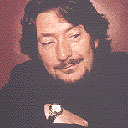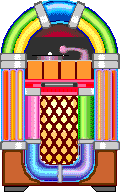
A very serious operation saved Chris Rea from MOR purgatory. Chiefly remembered for songs like The Road to Hell, which is about the frustrations of driving on the M25 during the rush hour, he could have continued to record the kind of music that finds its spiritual home in the CD deck of a Ford Mondeo. Then he discovered that life was too short to devote yourself to making money for other people, and went back to plough the grittier soil from which his musical roots first grew.
"Last year I nearly died," says Rea, who hasn't done too badly from the MOR years himself - his Berkshire home, a converted mill built over a tributary of the river Thames, has its own recording studio. "I had my pancreas, duodenum and half my stomach removed. The operation has a one-in-three survival rate, and it leaves you with diabetes and a lot of problems in dealing with fat. When I had the operation, they thought it was cancer everywhere and I didn't have a chance."
Before the 14-hour operation began, Rea said goodbye to the wife he has been with since he was 16, and realised that throughout an extremely successful musical career, he had never released a record that reflected the kind of music he actually liked, which is the blues. At the point when he was about to go through something he had a good chance of not coming out of, Rea returned to the memory of the first record he bought: an album by the delta blues great Charley Patton.
"That album made me learn the slide guitar," says Rea. "So just before I went into that operation, I thought: if I get through this, I've got to make the record that I would have done if nobody ever got in the way."
Seven weeks of heavy sedation following the operation resulted in hallucinations of everyone from his mother to blues singer Blind Willie Johnson being in the hospital room with him. "Throughout this period, I don't remember being that worried about dying," he claims, "but what really pissed me off was that I had not made a single record where the slide-guitar solo was as long as a slide-guitar solo is meant to be."
After he had recovered from the operation and kicked the resulting morphine habit, Rea got to work. The result, Dancing Down the Stony Road, takes a very different path from The Road to Hell and its ilk. "Charley Patton is the original inspiration," he says. "I didn't play anything when I was a kid. Then when I was 20, I went into my mam's bedroom because she had a double mirror and I wanted to see what the back of my hair was doing. She had an alarm-clock radio and it came on with this old guy moaning and hollering, playing this strange guitar. It was like a thunderbolt to me."
Patton was being played on a BBC link-up with a Memphis radio station, and in 1960s Middlesbrough, the record shops weren't exactly flooded with slide-guitar blues. "You couldn't find it back then, and you couldn't find the guitars either," says Rea. "I bought a Hofner guitar and amplifier for 32 guineas, then spent ages trying to make a bottleneck. At that point I was meant to be developing my father's ice-cream cafe into a global concern, but I spent all my time in the stockroom playing slide guitar. That was the real Chris Rea, not what followed. When I came down south and was put together with big producers, I always thought that they knew best. I never thought for a minute that they might have another agenda."
According to Rea, the art of 1970s record production was getting something out of the artist that the company wanted without the artist knowing. "All of a sudden I was the goose that laid the golden egg, and it was hell for me. My heroes were gospel blues players like Blind Willie Johnson, Charley Patton and Sister Rosetta Tharpe, not whoever was number one. I thought I would meet Taj Majal and Ry Cooder, but it was all weird people with gold chains and it was awful."
Most of Rea's CD collection is given over to delta blues. "It's less aggressive than Chicago blues, and the guitar playing has a style I call curling: there are some notes that are not a sharp or a flat, but a bend of emotion. It's a mournful sound, and delta people sing about deep pain, deep fear, and trying to save one's soul. Chicago players sing about girls and booze. Delta bluesmen were singing to the sky; Chicago bluesmen developed their stage act by singing to people who were drinking. It's a big difference."
Son House, Leadbelly, Blind Lemon Jefferson, Willie Johnson and Robert Johnson are all there, but Charley Patton dominates. "He's gruff, falling off his chair, making every line sound like the last one he sings before he hits the floor. You've got lines like, 'I'll kill your mother for a spoon of cocaine,' and much as I love him, I'm not sure if I would have wanted him in my daughter's house."
Now Rea plans to make up for lost time. "My weakness has always been cooperation, being afraid of executives and thinking that they know something when they don't. Now that I don't care what they think, I'm having my second chance."



